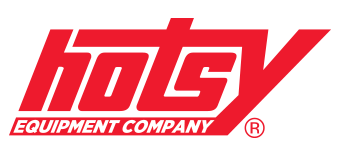What Is Better – Electric or Gas Pressure Washer?
Before you pick your unit, you’ll have to address this important question – what is better, electric or gas pressure washer? A seemingly never-ending debate, both home users and commercial cleaners alike still can’t agree on which type of pressure washer is the best.
So, which is it?
The reality is that this question doesn’t have a one-size-fits-all answer. It will depend on what you’re looking to use the unit for. Thus, you have to understand the pros and cons of each type of. Only then can you determine which option is the best one for your needs. Today, you’ll discover the differences between an electric pressure washer vs a gas pressure washer. By the end of this article, you’ll know exactly which one you need to go with.
But before all that, let’s talk about why it is so important to choose the right pressure washer.
Why Is Choosing The Right Pressure Washer So Important?
The difference between a gas pressure washer and an electric pressure washer might seem straightforward and insignificant, but it’s anything but.
Each type of pressure washer has unique features, advantages, and drawbacks. Some jobs are easier to do with an electric pressure washer, while others may require the power that a gas pressure washer provides. More than that, these pressure washers also have varying skill requirements. Depending on the user, one type of pressure washer may be safer to use than the other.
That said, choosing the right pressure washer is crucial to not only ensure that you’re doing the job right – but that you’re also doing it safely.
What Is An Electric Pressure Washer?
Electric pressure washers use an electric motor or pump to shoot pressurized water from the hose. They can be very powerful, with some commercial pressure washers even going up to 3,500 psi. But even with that kind of power, electric pressure washers tend to be quiet, which is important for residential use. They are great for cleaning small to medium-sized spaces/surfaces, such as patios, grills, and cars. If you need more power, many electric models can fit pressure washer accessories to boost your power or efficiency.
Another great thing about electric pressure washers is that they require very little maintenance. In fact, this is the main reason why some people prefer electric over gas. You don’t have to buy gas or oil, and you won’t have to replace any major parts. The only maintenance that an electric pressure washer needs is lubrication for the pump and, of course, general cleaning.
Now comes the downsides. An electric pressure washer is cheaper than a gas pressure washer. For some people, this is an upside. But if you want a machine that can last you for more than just a few years, choosing a cheaper machine won’t give you the durability you’re looking for.
Another possible disadvantage of an electric pressure washer is the power cord. You will be limited to cleaning areas with an outlet nearby – which can be inconvenient.
To summarize, here are the pros and cons of an electric pressure washer:
Pros
- Can go up to 3,5oo psi
- Lightweight
- Easy to start
- Can be used in enclosed spaces
- Quiet
- Inexpensive
- Little maintenance required
- Ideal for general cleaning tasks
Cons
- Less durable
- Less portable
- Must be plugged in at all times
What Is A Gas Pressure Washer?
Gas pressure washers have gas-fueled engines that power the water pump. They are more powerful than their electric counterparts, with an average psi of 2,800. More powerful models can go up to 4,200 psi – enough pressure to tackle the toughest of cleaning jobs.
Hence, gas pressure washers are suitable for both residential and commercial applications.
Since gas pressure washers don’t need to be plugged in, they are highly portable. Although they are heavy, gas pressure washer models typically have wheels to make them mobile. You can take them anywhere, as opposed to an electric pressure washer that requires a power source.
When it comes to durability, gas pressure washers take the cake. These machines are built to last for decades, which is why most professionals prefer them over electric pressure washers.
On the flip side, some people don’t like gas pressure washers because they require more maintenance. You have to constantly monitor the oil level so that the motor and pump remain cool. Plus, you may need to replace parts more frequently. And, of course, you need to keep it topped of with gas.
Because of their durability, gas pressure washers also tend to be more expensive – a downside to people looking for affordability. But if you want quality that lasts for years, the higher price point is definitely worth it.
Moreover, gas pressure washers make a lot of noise and produce harmful emissions. With that in mind, it is generally unsafe to use a gas-powered pressure washer in an enclosed space. You also need to wear proper ear protection if the noise levels go beyond 85 decibels (according to the Occupational Health and Safety Administration or OSHA).
To summarize, here are the pros and cons of a gas pressure washer:
Pros
- Can go up to 4,200 psi
- Highly portable
- Extremely durable; can last for 10 years and beyond
- Ideal for large, tough cleaning jobs
Cons
- Expensive
- Loud
- High maintenance
- Harmful emissions
- May be dangerous for inexperienced users
So – What Is Better, Electric or Gas Pressure Washer?
So, what is better, electric or gas pressure washers?
Now that you know the pros and cons of each type, you can probably already tell which one is the best for you. If you need a pressure washer for small cleaning jobs and don’t mind the limited portability, an electric pressure washer may be the more cost-effective choice. After all, you don’t need to invest in an expensive machine if you’re only going to use your pressure washer a few times per year.
But what if you need something more powerful, durable, and portable? Well, a gas pressure washer ticks all those boxes. Investing in a gas pressure washer will allow you to clean large surfaces and the toughest stains with higher psi. Not sure how much pressure washer psi you need? We wrote a complete guide to help you decide.
Additionally, you can take a gas pressure washer anywhere. So, you won’t be limited to cleaning jobs with a nearby power source.
Here’s a snapshot of the differences between each option:
Power
Gas pressure washers are more powerful, making them the better choice for very tough cleaning jobs and large surfaces. Some gas pressure washers can even remove rust.
Portability
Since gas pressure washers do not need to be plugged in, they trump electric pressure washers in portability.
Weight
Electric power washers are lighter. Hence, they are easier to use and transport. Gas power washers are heavy, but they have wheels to make up for this and allow for easy mobility.
Affordability
Electric power washers are generally cheaper than their gas counterparts. If you only need a machine for general, infrequent use, an electric power washer may be just what you’re looking for.
Durability
An electric pressure washer can last for a long time with proper care. However, they are not as durable as gas pressure washers, which can easily last more than ten years.
Maintenance
Electric pressure washers require little maintenance, which is a key advantage if you don’t have a lot of time. Gas pressure washers, on the other hand, need constant maintenance in order to function properly.
Safety
If you don’t have much experience with pressure washers, an electric model will be the safest option. Gas pressure washers are way more powerful and, therefore, require more skill to operate safely.
Noise
If noise is an issue, an electric power washer is quieter than a gas-powered one. You will need ear protection when using the latter. All that said, the better choice depends on your personal needs. So, only you can answer which is the best pressure washer for you!
Final Thoughts On Which Is Better: Electric or Gas Pressure Washers
Now that you know what is better – an electric or gas pressure washer – there is just one thing left to do – pick yours!
Electric pressure washers are ideal for general cleaning jobs that only require moderate psi. As long as you have a power source, you can use an electric pressure washer without any problems. This type of washer is quiet, lightweight, and low maintenance. Plus, it’s safe to use even for inexperienced homeowners.
Gas pressure washers are the better choice if you need more power and want to clean something far away from an electrical socket. Durable and long-lasting, you can expect your gas pressure washer to last for decades!
The final answer? It all boils down to your needs and preferences. Now that you know the differences between each type of washer, you can make the best choice for you and your home. You should also read our article discussing hot water vs cold water pressure washers – as this is an important consideration, too. And if you’d like a specific recommendation, take a look at our year-end review of the best commercial pressure washers. When the time comes to buy yours, head over to Hotsy – the most trusted pressure washer store in San Antonio!



